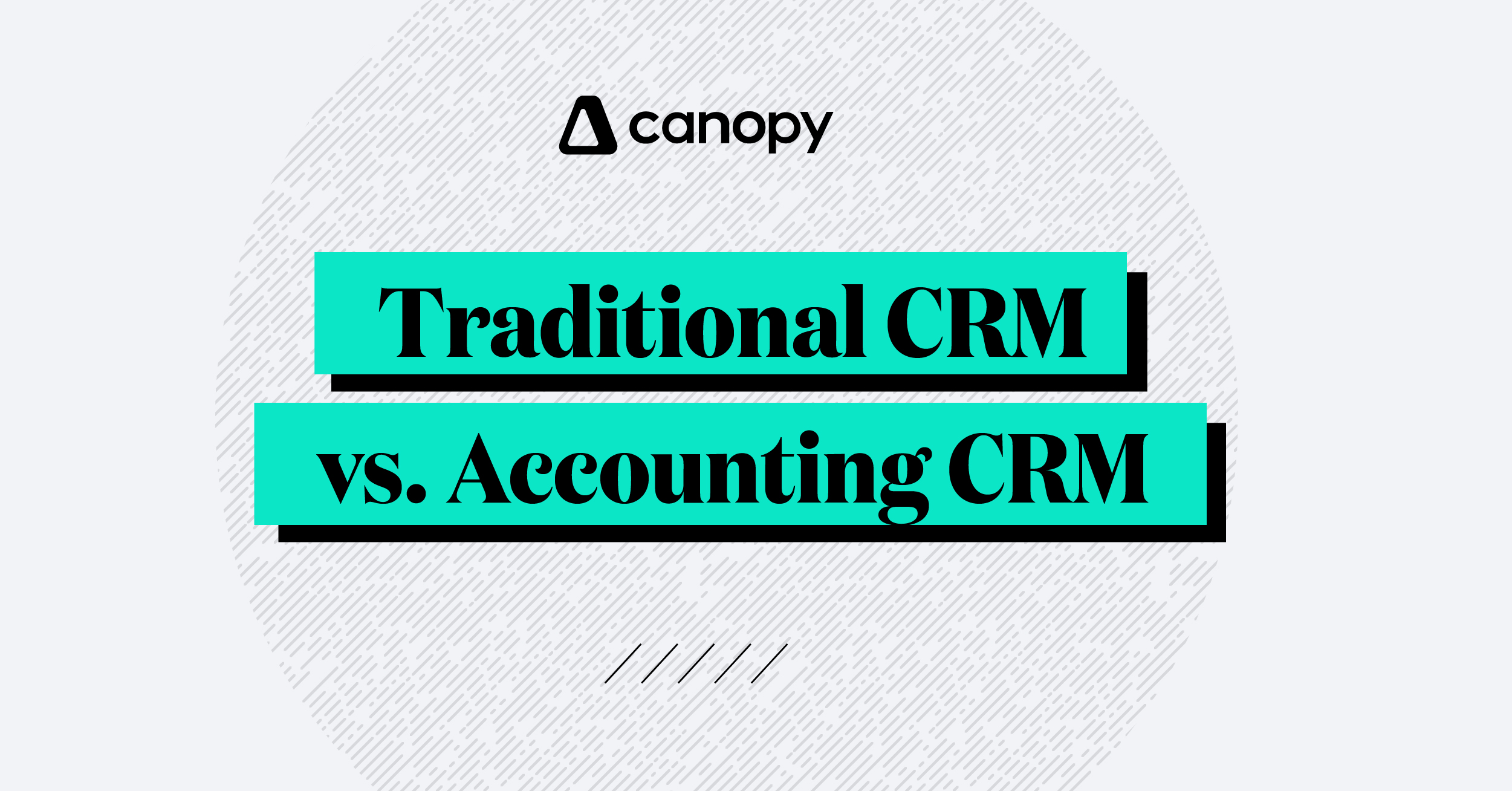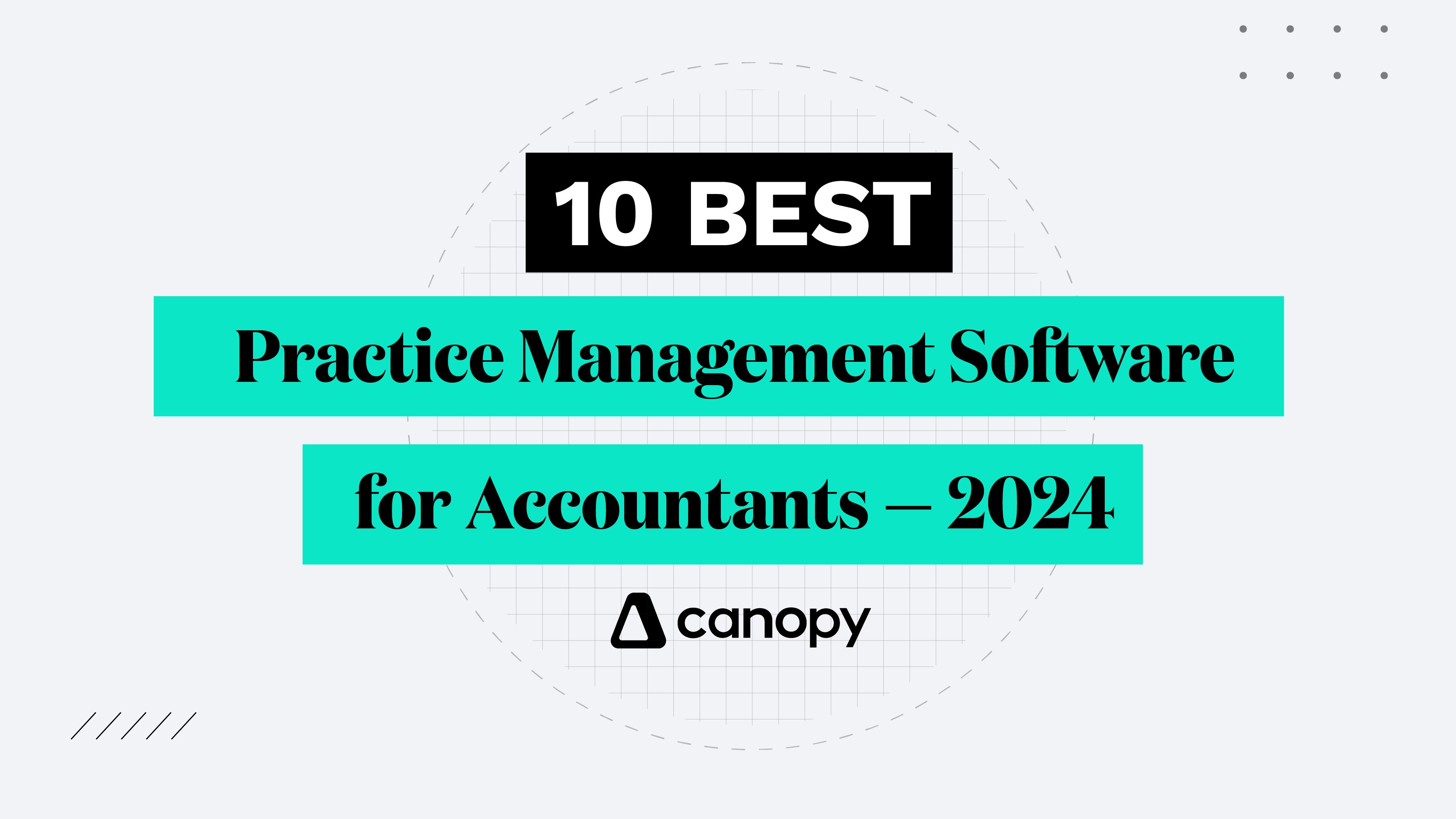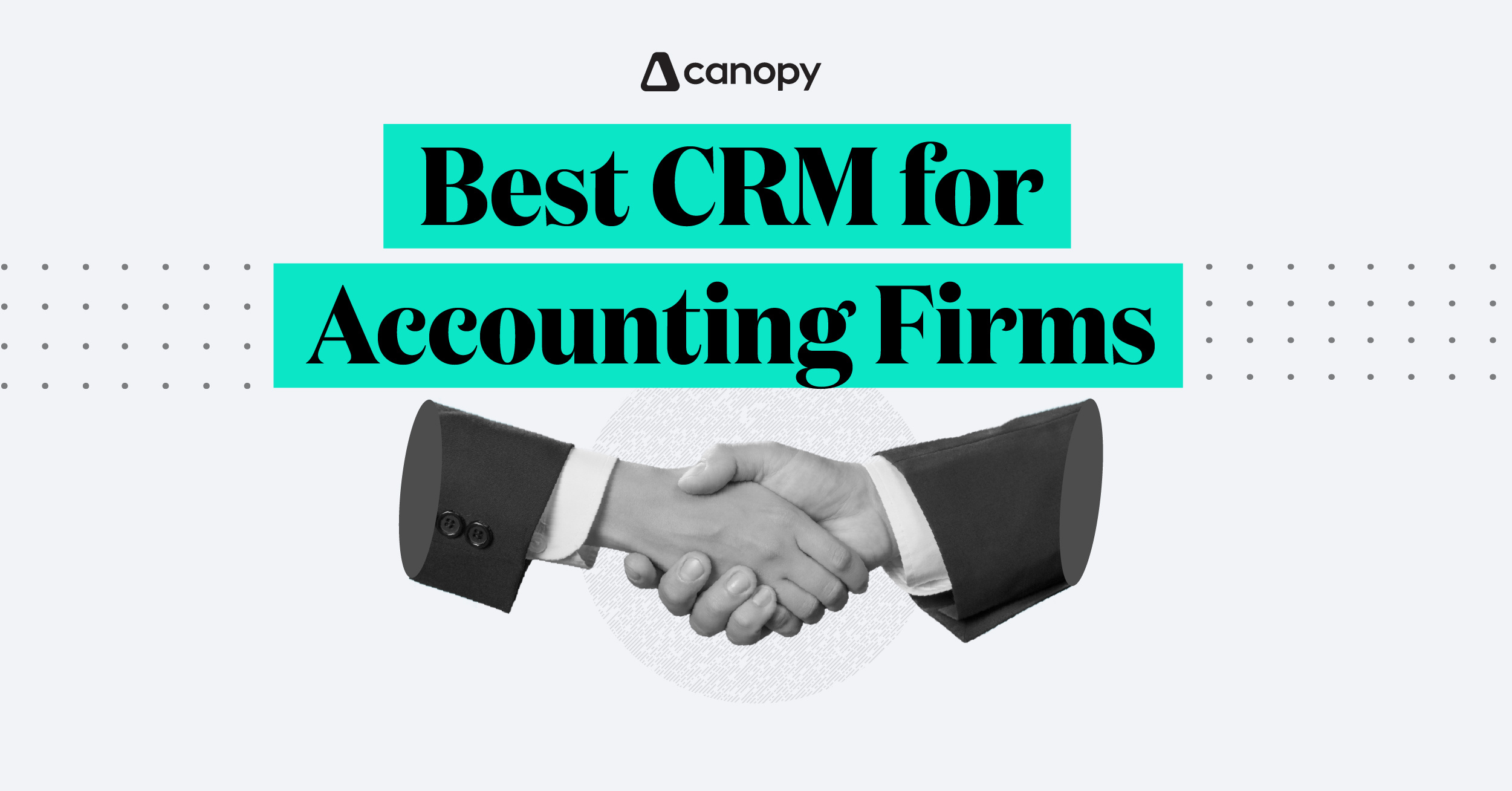Did you know that Customer Relationship Management (CRM) systems can increase customer retention rates by 27% and improve customer relationships in 74% of businesses? It's no wonder CRM systems have become indispensable in today's competitive business environment.
For accountants, choosing the right CRM — traditional or accounting-specific — can feel as complex as navigating a dense financial spreadsheet. Let's dive into these two CRM types to help you make an informed decision that could redefine your business strategy.
Understanding the Fundamentals
Traditional CRM
At its core, it enhances sales, marketing, and service engagements. It gathers customer information from websites, telephone, live chat, and social media. Imagine having a centralized dashboard where every customer interaction is transformed into actionable insights, enhancing every subsequent interaction.
Accounting CRM
Imagine combining the robust features of traditional CRM with powerful accounting tools. Accounting CRM does just that—it integrates crucial financial tasks such as transactions, invoicing, and financial reporting into the CRM system. This integration is a game-changer for accountants, enabling streamlined customer interactions alongside meticulous financial management—all from one platform.
The Numbers Speak: CRM Adoption Statistics
The CRM market is booming, with its value expected to soar at a compound annual growth rate (CAGR) of 10.6% from 2021 to 2028, reaching new heights in business technology integration. While Accounting CRM adoption specifics are niche, the trend is clear: there is a burgeoning demand for CRM solutions tailored to specific professional needs, including those of accountants.
Why Does It Matter to You?
Feature Richness
Traditional CRM excels in customer data management and lead tracking, offering tools to enhance customer satisfaction and insight-driven marketing strategies significantly. However, accounting CRM steps it up by merging these features with essential accounting functions, allowing for real-time financial health forecasts and streamlined billing processes within your CRM.
Target Audience
While traditional CRMs cater to a broad range of industries and departments, Accounting CRMs are crafted explicitly for financial experts who require a deep dive into the financial nuances of their clients, offering tailored tools for high-precision financial management.
Pros and Cons: What to Expect
The primary benefit of an Accounting CRM system is its ability to provide a holistic view of customer relationships and financial data. This integration facilitates better financial decision-making, improves billing processes, and enhances financial reporting accuracy.
However, one potential challenge is the learning curve associated with mastering these integrated systems. Ensuring all users are comfortable with the software's CRM and accounting aspects can require significant training and adaptation.
Making the Right Choice
The decision between a traditional and an Accounting CRM should be guided by the depth of integration your financial management requires with customer relationship processes. For accountants, the seamless workflow offered by an Accounting CRM could be the key to unlocking efficiency and superior client service.
Looking Ahead: The Future of CRM in Accounting
With the rapid advancements in technology, including AI and machine learning, the potential for CRMs to offer even more sophisticated data analysis and customer insights is on the horizon. Staying updated with these trends is essential for leveraging CRM to its fullest potential, ensuring your practice remains ahead in innovation and customer satisfaction.
Choosing the right CRM isn't just about selecting software; it's about strategically enhancing your practice's operational efficiency and client satisfaction. Keeping abreast of the latest technological advancements as the CRM landscape evolves will position your practice at the forefront of industry innovation and excellence.

Chris is a content manager for Canopy, joining the team with a combined eight years of experience as a copywriter, editor-in-chief, and content marketer. He's a skilled wordsmith and strategic thinker who shapes brand identity through compelling content and fosters a collaborative and innovative environment. With a passion for storytelling and a dedication to excellence, he is a driving force behind any company's success in content marketing. Champion of the Oxford comma.
READ MORE BY Chris






Get Our Latest Updates and News by Subscribing.
Join our email list for offers, and industry leading articles and content.